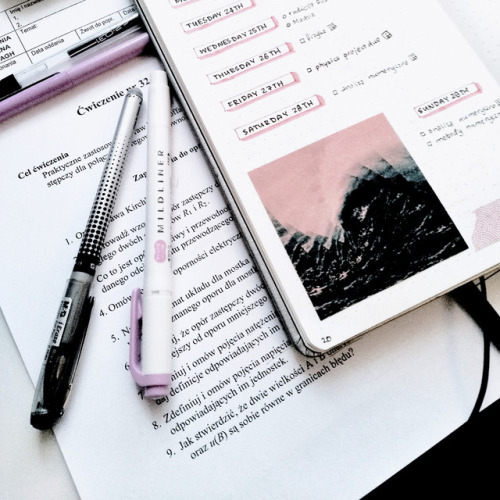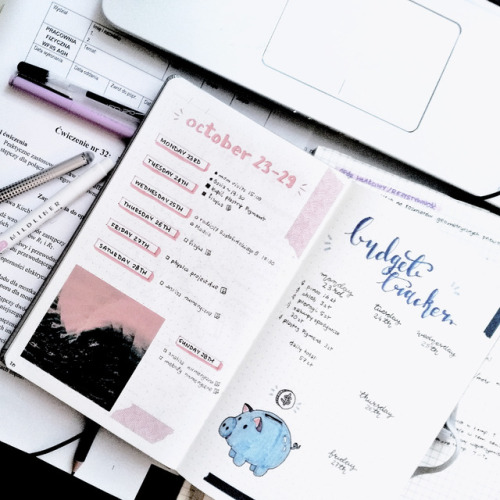Refseek.com


refseek.com

www.worldcat.org/

link.springer.com

http://bioline.org.br/

repec.org

science.gov

pdfdrive.com
More Posts from Oliviasstudyblrshit and Others

graduation is just around the corner for me! equally nervous and excited!
let the nclex studying begin :-)
♡ quick links
- etsy shop
- free printables, wallpapers, digital stickers!
♡ tag me! @annastudyskills | #annastudyskills
Find Language Content to Immerse Yourself In










DIY Study Supply: Customizable Acrylic Board
Click on images for better resolution
Hey everyone! So I’ve recently been seeing acrylic board planners like this one circulating around social media, and I thought there could be a better way to implement the same thing - more customizable, more versatile, cheaper. Here’s one of the ways you can make a customizable acrylic planner for yourself! I have one of my own and it’s been a wonderful productivity tool. Hope you like it <3
Here’s a link to my printables that you can use as templates!
to the anon struggling with the kanji memrise course, there is also some just in kana, such as course 29267 which is for Genki 1 or 258569 which is N5 grammar for beginners. (I can't link the courses in an ask, but you can put 'course/258569' in the memrise URL, hope this helps ^^
for the anon ^
thanks for the tip 💖


23/100 days of productivity ❇️ this week’s bujo spread, with a budget tracker because I spend WAY too much! Was doing physics again today (wow, what a surprise), but also went to a java class and numerical analysis lecture.
:(
What did you learn about people? How might a person who is not studying develop their bullshit-ometer?
“What did you learn about people” is much too broad to answer given how much is covered in a three year bachelors degree. Everything from theories of the self, errors biases and heuristics, attitudes and emotions, theories behind behaviours, social influence, group affiliation, psychological development from childhood to adulthood and its effect, models of personality and individual differences, memory, how we learn, the psychology of choice and decisions, and the genetic/biological/social/environmental factors of all of the above and what happens when it goes wrong and becomes pathology.
In terms of developing a bullshit-ometer, or improving your judgement and understanding of evidence, the key is practice. For a module in my first year we were given a paper every week and a prompt sheet to fill in that effectively helped you tear the paper apart. Prompts included everything from the method and sample size, to the statistical tests used, whether they were used appropriately, and whether all of the assumptions of each test were met, etc. It would take me upwards of two hours to get through a ten page paper, and even then I’d miss things. Three years on, I can skim a paper or article or hear a person’s argument, spot any major red flags, and tear it apart under exam conditions in thirty minutes. It takes a lot of time and work to be able to do it quickly. Having it embedded as a philosophy into everything you’re learning helps as you start doing it unconsciously eventually.
Resources:
Bad Science by Ben Goldacre. To me, an absolutely essential read.
The Art of Statistics by David Spiegelhalter. Spiegelhalter is a statistical genius, and he’s now spending his time trying to change the way statistics is taught, moving it away from learning loads of formulas and then trying to figure out how they relate to evidence, towards the PPDAC (problem, plan, data, analysis, conclusion) model. To understand evidence and pick up the misuse of statistics (aka bullshit) you need at least a basic understand of stats. This book does it perfectly, in plain English, with interesting examples. I wish it had been published when I first started my degree.
I Think You’ll Find It’s A Bit More Complicated Than That by Ben Goldacre. This is a collection of most of Ben Goldacre’s columns which used to appear in The Guardian, in which he takes a claim in the media or a new study and tears it apart. It’s an interesting read, might change your perception on a few things, and is him tackling bullshit in practice.
Reckoning With Risk by Gerd Gigerenzer. There are lots of complex statistics in this (which he signposts and you can just pass over), but understanding how statistics of risk work, and what they mean, will completely change how you read and assess a lot of claims made in the news.
The Students 4 Best Evidence blog. It mainly covers evidence based medicine, but the key concepts transfer to all research and claims outside of medicine. Anything under the bias, critical thinking, intro to evidence-based practice, and statistics topics is relevant. Particularly anything tagged ‘tutorials and fundamentals’. Their Key Concepts Archive is a good place to start.
The Testing Treatments website. Again, covers medicine, but most of the points generalise out. Under each concept, say ‘association is not causation’, there is a ‘find learning resources’ link that will find papers, online courses/modules, and books about that concept.
Cochrane Training. Cochrane are the gods of the systematic review. All their online learning modules surrounding assessing evidence are here.
Think Again: How to Reason and Argue, either the book, or the online course. The perfect crash course in reasoning, arguing, avoiding fallacies, picking apart other people’s arguments, and finding bullshit.
The Clearer Thinking website has a range of tools/mini modules. Relevant ones here:
How well can you tell reality from B.S.?
Interpreting evidence
Belief challenger, making your views more accurate
Guess which experiments replicate
More books.
A Field Guide to Lies and Statistics: A Neuroscientist on How to Make Sense of a Complex World by Daniel Levitin
How To Lie With Statistics by Darrell Huff

↳ 05.20.19.
i always make my new weekly spread monday mornings, look how blissfully empty :’) currently annotating chinese textbook readings while watching “love is a bonus book” on netflix, i loooooove it so far ✨
-
 immortaldarkpassion liked this · 2 weeks ago
immortaldarkpassion liked this · 2 weeks ago -
 y0-sh liked this · 2 weeks ago
y0-sh liked this · 2 weeks ago -
 skipthedemon reblogged this · 2 weeks ago
skipthedemon reblogged this · 2 weeks ago -
 agave-sunrise reblogged this · 2 weeks ago
agave-sunrise reblogged this · 2 weeks ago -
 agave-sunrise liked this · 2 weeks ago
agave-sunrise liked this · 2 weeks ago -
 530862 reblogged this · 2 weeks ago
530862 reblogged this · 2 weeks ago -
 530862 liked this · 2 weeks ago
530862 liked this · 2 weeks ago -
 puppy--dyke liked this · 2 weeks ago
puppy--dyke liked this · 2 weeks ago -
 puppy--dyke reblogged this · 2 weeks ago
puppy--dyke reblogged this · 2 weeks ago -
 doctorfeliuzumaki liked this · 2 weeks ago
doctorfeliuzumaki liked this · 2 weeks ago -
 neozhelps reblogged this · 2 weeks ago
neozhelps reblogged this · 2 weeks ago -
 forbiddensender liked this · 2 weeks ago
forbiddensender liked this · 2 weeks ago -
 rocklain reblogged this · 2 weeks ago
rocklain reblogged this · 2 weeks ago -
 rocklain liked this · 2 weeks ago
rocklain liked this · 2 weeks ago -
 judge-beef reblogged this · 2 weeks ago
judge-beef reblogged this · 2 weeks ago -
 au-ace liked this · 2 weeks ago
au-ace liked this · 2 weeks ago -
 celestialrobos reblogged this · 2 weeks ago
celestialrobos reblogged this · 2 weeks ago -
 celestialrobos liked this · 2 weeks ago
celestialrobos liked this · 2 weeks ago -
 jesusstacamel reblogged this · 2 weeks ago
jesusstacamel reblogged this · 2 weeks ago -
 jesusstacamel liked this · 2 weeks ago
jesusstacamel liked this · 2 weeks ago -
 evenmorepokehxes liked this · 2 weeks ago
evenmorepokehxes liked this · 2 weeks ago -
 clued-into-mysteries liked this · 2 weeks ago
clued-into-mysteries liked this · 2 weeks ago -
 collectively-solar reblogged this · 2 weeks ago
collectively-solar reblogged this · 2 weeks ago -
 connie-boy reblogged this · 2 weeks ago
connie-boy reblogged this · 2 weeks ago -
 connie-boy liked this · 2 weeks ago
connie-boy liked this · 2 weeks ago -
 momtula liked this · 2 weeks ago
momtula liked this · 2 weeks ago -
 gl0ssix reblogged this · 2 weeks ago
gl0ssix reblogged this · 2 weeks ago -
 gl0ssix liked this · 2 weeks ago
gl0ssix liked this · 2 weeks ago -
 honeyshineshipsandshit liked this · 2 weeks ago
honeyshineshipsandshit liked this · 2 weeks ago -
 littlemusicalwitch reblogged this · 2 weeks ago
littlemusicalwitch reblogged this · 2 weeks ago -
 superheroes liked this · 2 weeks ago
superheroes liked this · 2 weeks ago -
 paintdoughnut reblogged this · 2 weeks ago
paintdoughnut reblogged this · 2 weeks ago -
 inkydoughnut liked this · 2 weeks ago
inkydoughnut liked this · 2 weeks ago -
 lord-kovtrashcan reblogged this · 2 weeks ago
lord-kovtrashcan reblogged this · 2 weeks ago -
 ray-green-wicked4good reblogged this · 2 weeks ago
ray-green-wicked4good reblogged this · 2 weeks ago -
 discretocincel reblogged this · 2 weeks ago
discretocincel reblogged this · 2 weeks ago -
 discretocincel liked this · 2 weeks ago
discretocincel liked this · 2 weeks ago -
 kirra-qween115 reblogged this · 2 weeks ago
kirra-qween115 reblogged this · 2 weeks ago -
 kirra-qween115 liked this · 2 weeks ago
kirra-qween115 liked this · 2 weeks ago -
 imsotired liked this · 2 weeks ago
imsotired liked this · 2 weeks ago -
 felren13 reblogged this · 2 weeks ago
felren13 reblogged this · 2 weeks ago -
 hazelgardener reblogged this · 2 weeks ago
hazelgardener reblogged this · 2 weeks ago -
 hazelgardener liked this · 2 weeks ago
hazelgardener liked this · 2 weeks ago -
 cattusinhortum reblogged this · 2 weeks ago
cattusinhortum reblogged this · 2 weeks ago -
 watsdaughter liked this · 2 weeks ago
watsdaughter liked this · 2 weeks ago -
 hickorybird liked this · 2 weeks ago
hickorybird liked this · 2 weeks ago -
 lyricwritesprose reblogged this · 2 weeks ago
lyricwritesprose reblogged this · 2 weeks ago -
 ohmyeightpastlives reblogged this · 2 weeks ago
ohmyeightpastlives reblogged this · 2 weeks ago -
 starmen999 reblogged this · 2 weeks ago
starmen999 reblogged this · 2 weeks ago -
 starmen999 liked this · 2 weeks ago
starmen999 liked this · 2 weeks ago





